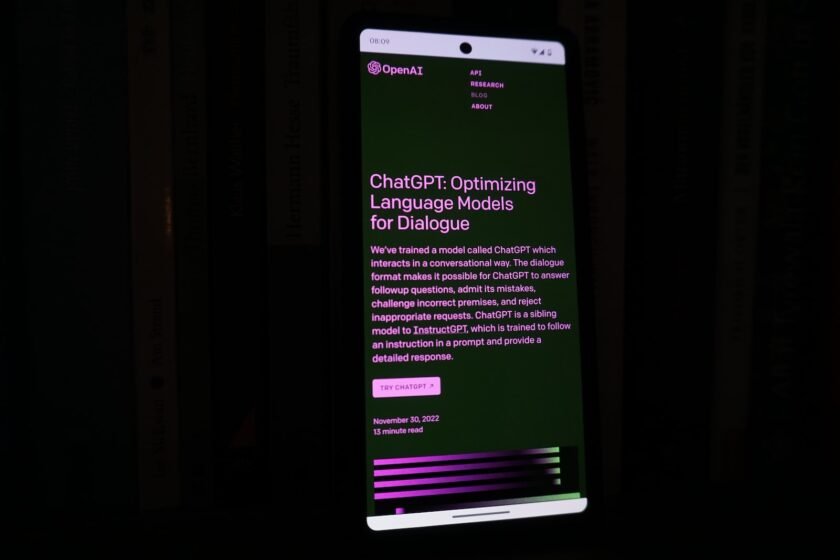As an AI language model, ChatGPT is designed to generate human-like text using advanced natural language processing techniques. However, some people have raised concerns about whether ChatGPT plagiarizes content from other sources. In this article, we will explore this question in detail and provide a definitive answer based on available evidence.
Introduction
ChatGPT is an advanced language model developed by OpenAI, which is designed to generate human-like text in response to prompts given by users. It has gained significant attention due to its impressive capabilities, including its ability to understand and generate natural language text, summarize text, and answer questions based on the provided input.
However, some people have raised concerns about the originality of the text generated by ChatGPT. In this article, we will explore whether these concerns are justified and whether ChatGPT can be considered a source of original content.
What is ChatGPT?
Before delving into whether is chat gpt plagiarism free content or not, it’s essential to understand what ChatGPT is and how it works. ChatGPT is an AI-powered language model developed by OpenAI, which uses deep learning techniques to generate human-like text. The model is based on a transformer architecture and has been trained on a massive dataset of human language text to improve its natural language processing capabilities.
How does ChatGPT generate text?
ChatGPT generates text using a process called “text completion,” which involves predicting the most probable next word in a sequence of words based on the input given by the user. The model is trained on a vast amount of data to understand the patterns and relationships between words, allowing it to generate coherent and relevant text.
Does ChatGPT plagiarize content?
The short answer is no; ChatGPT does not plagiarize content. The model generates text based on the patterns and relationships between words it has learned from the training data, but it does not directly copy content from other sources. However, the text generated by ChatGPT can contain similar or identical phrases to those found in the training data or other sources, which may give the impression of plagiarism.
The role of training data in ChatGPT’s text generation
ChatGPT’s text generation capabilities rely heavily on the quality and diversity of the training data it has been trained on. The model has been trained on a massive dataset of human language text, including books, articles, and websites, to improve its natural language processing capabilities.
The quality and diversity of the training data can have a significant impact on the quality and originality of the text generated by ChatGPT. If the training data contains a lot of similar or identical content, it may affect the originality of the text generated by the model.
Limitations of ChatGPT’s text generation
Despite its impressive capabilities, ChatGPT has several limitations that may affect the originality of the text it generates. One of the main limitations is the lack of real-world knowledge and context, which can sometimes result in irrelevant or inaccurate responses.
Additionally, the text generated by ChatGPT may contain biases and stereotypes found in the training data, which may affect the credibility and accuracy of the text.
Ethical considerations of ChatGPT’s text generation
The text generated by ChatGPT raises several ethical considerations, including issues related to authorship,
ownership, and attribution. As ChatGPT generates text that resembles human writing, it raises questions about who should be credited as the author of the content generated by the model. Additionally, there is a risk that the model could be used to generate fake news or misinformation, which could have significant social and political implications.
OpenAI, the developer of ChatGPT, has recognized the ethical concerns raised by the use of language models and has implemented several measures to mitigate these concerns. These measures include limiting access to the model, ensuring transparency and accountability, and encouraging responsible use of the technology.
How to ensure originality when using ChatGPT
If you’re using ChatGPT to generate text, there are several steps you can take to ensure the originality of the content. Firstly, you should ensure that the prompt given to ChatGPT is specific and unique, as this will reduce the likelihood of the model generating content that is similar to existing sources.
You should also check the generated text for plagiarism using a plagiarism checker tool to ensure that it is original and does not contain any content copied from other sources. Additionally, you can modify the generated text to ensure that it is unique and fits your specific needs.
Conclusion
In conclusion, ChatGPT does not plagiarize content, but the text it generates may contain similarities to existing sources due to the nature of its training data. While ChatGPT has impressive capabilities, it also has limitations and ethical concerns that need to be considered when using the model.
To ensure the originality of the content generated by can chat gpt be detected as plagiarism, it’s essential to be specific with the prompts given to the model, check the generated text for plagiarism, and modify it to fit your specific needs.
FAQs
Can ChatGPT be used to generate original content?
Yes, ChatGPT can be used to generate original content, but it requires specific and unique prompts and careful checking for plagiarism.
Is ChatGPT capable of producing plagiarism?
No, ChatGPT does not directly copy content from other sources, but the text it generates may contain similarities to existing sources.
How can I ensure the originality of the text generated by ChatGPT?
To ensure the originality of the text generated by ChatGPT, you should be specific with the prompts given to the model, check the generated text for plagiarism, and modify it to fit your specific needs.
What ethical concerns are raised by the use of ChatGPT?
The use of ChatGPT raises ethical concerns related to authorship, ownership, attribution, and the potential use of the model to generate fake news or misinformation.
What measures has OpenAI implemented to address the ethical concerns raised by ChatGPT?
OpenAI has implemented several measures to address the ethical concerns raised by the use of ChatGPT, including limiting access to the model, ensuring transparency and accountability, and encouraging responsible use of the technology.

As an architecture and interior designer, I am passionate about creating spaces that inspire and delight those who inhabit them. With over a decade of experience in the industry, I have honed my skills in both the technical aspects of design and the art of crafting beautiful, functional spaces.
After earning my degree in architecture, I began my career working for a prestigious firm where I was exposed to a wide range of projects, from commercial buildings to high-end residential properties. During this time, I developed a keen eye for detail and a deep appreciation for the importance of form and function in design.
In recent years, I have struck out on my own, founding my own design studio where I have been able to further explore my passion for interior design. I believe that a well-designed space can transform the way people live and work, and I take pride in working closely with clients to understand their needs and create spaces that exceed their expectations.
Throughout my career, I have been recognized for my innovative and creative approach to design, and have been honored with a number of awards and accolades. When I’m not working on design projects, you can find me exploring the outdoors or seeking inspiration in the world around me.


